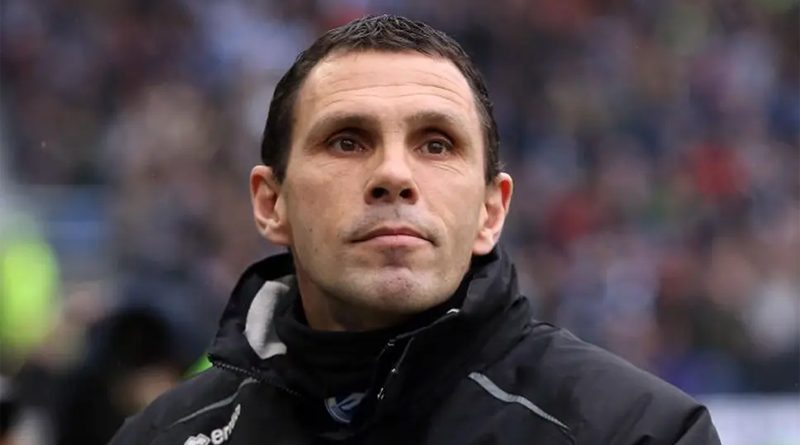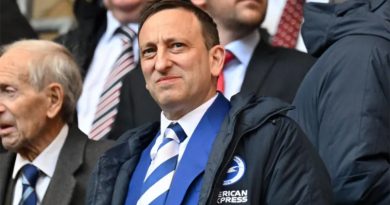Gus Poyet lifts the lid on his Brighton departure to Together BHA
Few figures in Brighton & Hove Albion history have polarised opinion like Gus Poyet.
At first, Poyet could do no wrong. He was the manager who transformed the Albion from League One strugglers into a side capable of challenging for a spot in the Premier League inside of three years.
He delivered the greatest season we are ever likely to see. No Brighton side have ever dominated a division like his 2010-11 League One title winners, securing promotion with five games to spare and the championship with four left to play.
Away days like beating Charlton Athletic 4-0 and Peterborough United 3-0 – both of whom were second in the table when the Albion demolished them on their own patches – happen once every 30 years for a club like Brighton. If you are lucky.
And then it all went south. There is something quite Shakespearean about Poyet’s rise and fall. He went from universally loved to letting his ego get the better of him, touting himself for other jobs as he felt himself bigger than Brighton.
That all came to a head after the playoff semi final defeat to Crystal Palace. Rather than show some regret for losing to our arch rivals in the biggest game of the season, Poyet instead used his post game interview to complain at a lack of money and say that there was a glass ceiling between Brighton and the Premier League.
Which didn’t make much sense as the Palace starting XI who had just won 2-0 at the Amex Stadium – and would go onto win promotion – cost less to put together than the £2.5 million that Poyet had paid for Craig Mackail-Smith.
Tony Bloom had heard enough by that point and so sacked Poyet. To this day, Brighton & Hove Albion seem to hate him so much that they try to avoid even mentioning Gus Poyet by name.
He has been airbrushed from history, although how long the club can keep that pettiness up for remains to be seen. The 10th anniversary of the 2010-11 season is nearly upon us and they surely cannot expect to mark it without at least acknowledging the part Poyet played.
The silence from the Albion’s side on Poyet’s departure is hardly a shock. More surprising has been that Gus Poyet has never had his say on how his time at Brighton ended, or indeed the success that he helped to deliver.
Until now, that is. The guys at the Together BHA Podcast have become the first people to speak to Poyet. The result is a two-hour long interview that is brilliant for supporters, although it might make uncomfortable listening for some in the corridors of power at the Amex.
Poyet starts by saying that he is grateful to finally have a chance to talk about his time at the Albion, telling hosts Josh and Robin, “It feels like everything is bad in Brighton with me.”
Why has it taken a fans’ podcast to be the first outlet to offer Poyet voice? Gus believes that Brighton have “managed” the situation, making media outlets and other fan groups reluctant to speak to him for fear of upsetting the club and having their future access at the Amex restricted.
It’s an interesting take. Certainly, you would think that Andy Naylor at The Athletic or Brian Owen at The Argus could scoop a blockbuster story from talking to Poyet – even if it was just about the 2010-11 season.
Everybody knows how quotable Poyet is and as Gus himself says, 99% of the stuff he has to say about Brighton is good. So you have to wonder why nobody from Sussex has been in touch in seven years since his departure.
The part of the interview that most people will reach straight for is of course Poyet’s departure. With neither side having spoken openly about it before, supporters have been left to fill in a lot of the gaps with rumour and tittle tattle.
Poyet touches on that. “When people started saying lies about why I left the club, that hurt me a lot. But unfortunately we live in a world where if you have Twitter, and you say you are close to me or the staff or the chairman and you repeat it and repeat and repeat it, people believe it.”
Poyet’s belief is simple – he had the perfect relationship with Bloom right up until new faces began arriving in the boardroom.
“My relationship with Tony Bloom was exceptional. He had a connection with me, we had an understanding and he helped me a lot. We came together at the right time.”
“We will never be able to talk properly about the situation that saw me sacked because it is private and confidential. But in reality, it shouldn’t be confidential as I got sacked. I think there is too much respect to say what happened.”
“In my opinion, the club thought I had too much power. I didn’t ask for it, but slowly they were giving it to me and I took it because of my character. I obviously took it, because it was me.”
“Inside the boardroom, things were changing. Especially new people who were not liking someone with that power inside the club. They can invent things. They can spread rumours.”
Among those rumours that have become accepted fact is the one about Poyet trying to engineer a move to Reading. The Biscuitment came in for his services in March 2013 and the story goes that Poyet was desperate to swap top six of the Championship for a club heading for relegation out of the Premier League.
He remembers it rather differently. “A month and a half before the end of the season, Reading came in for me. And they agreed compensation.”
“How do you take that? As manager of a club which is in the top six of the Championship with a month and a half to go, and your club agree compensation for you to go and talk to another club, how do you take that?”
“I could have come out and said to the fans I’m going to leave because Brighton have agreed a price for me to go to Reading. I didn’t do that.”
“When Brighton called me in the international break to say Reading got in contact, I said to the club if you agree compensation, then we’ll see.”
“When the club call me and say we’ve agreed compensation, naturally you think you can go. It makes you think. They could have asked for twenty million or said no, we don’t give you permission if they wanted me to stay. So, I talk to Reading. They offer me a contract, bigger with a bigger budget. And I declined it. I said no.”
“Already, there were things happening inside the club. My power, how much I was in charge, how we did things. It was changing. It was uncomfortable but it didn’t mean I wanted to go. You show loyalty and it goes against you.”
Fast forward to that Palace playoff semi final. According to Poyet, the defeat gave those in the boardroom who wanted him out the perfect excuse to give him the sack.
“We were so confident after the first leg (a 0-0 draw at Selhurst Park) that we would get through but that is football and you learn. We lost because we didn’t perform. Bottom line. And people didn’t like that. No excuses.”
“We were planning for next season, pre-season and then we’ve got this disciplinary hearing. A great experience. I hope you never have to go through that in your job because it’s funny.”
“You get accused and then judged by the same people. Imagine I accuse you now of something, and then I’m also going to be the one judging you. That’s the way it worked.”
“I would love to be able to tell you the five points written in my sacking letting, because you would say ‘seriously?’. Now that’s part of football, you can be sacked from your job for different reasons.”
“If we won promotion, I would have been at the club the next season against the person who used what happened as the perfect situation for me not to be there. And if I stayed, he would have needed to shut up.”
“Five months later, we might have been in the bottom five and then I would have been sacked. It was just a matter of time.”
“People close to the club were accusing me of trying to leave because I had a job. Did I? I went through June, July and August, September, October before I got a job and that was because Sunderland were bottom of the Premier League with one point from seven games.”
“I was trying to make sure that we kept going in the same direction that me and Tony Bloom set up four years earlier. The relationship and the way we worked together, there was no better in the history of Brighton. I don’t think you could have a better working relationship than I had with Tony Bloom.”
“The club was going in another direction and I had too much power. I couldn’t be the future of the club with that power and somebody didn’t like it. And that’s it.”
“We built something. I’m not going to say the words to the song because I have a letter from the FA and I don’t want another one. But for a manager to have a group of supporters making a song, singing from Peterborough on, what they were singing about your team, is something spectacular.”
“That created something and when I left it broke. So people have to believe something happened. Imagine two parents getting divorced and the kid living with one of those parents.”
“When this parent tells the kid everything that is bad about that other parent, naturally this kid is going to believe the person they are living with.”
“Because I haven’t talked for years, the only thing you can believe as a Brighton fan is the parent who is talking. And the parent is talking bollocks.”
The rest of the interview is equally interesting. Gus Poyet constantly refers to his time at Brighton as his best in football. You can hear the pride in his voice when he recalls being told, “You’ve got no chance of playing the football you want in League One, no chance.” He proved that theory completely wrong.
How he turned Adam El-Abd from a backup right back/left back/centre back/holding midfielder into Player of the Season ahead of the likes of Elliott Bennett, Liam Bridcutt, Inigo Calderon and Glenn Murray is covered in detail.
The infamous story about Poyet and Mauricio Taricco flying out to Groningen to watch Virgil van Dijk is told, perhaps for the first time. We won’t spoil all of it, but according to Poyet, van Dijk could have been Brighton’s if we had found €3 million.
Poyet’s complaints about his lack of funds towards the end of his time at the Amex were often irksome. Interestingly, he uses the interview to praise Bloom for finding extra money to pay for the 2012 signing of David Lopez when Brighton’s transfer budget was all but gone.
Vicente’s brilliance features, even though the Dagger famously called Poyet “the worst person I’ve come across in football.” Gus explains how he would ask the Spaniard to sit on the bench even when he wasn’t fit and hadn’t trained all week, knowing that just 20 minutes from a half-fit Vicente could win a Championship game. It was his desperation to use Vicente that soured their relationship.
The Dale Stephens haters will be disappointed to hear Poyet give the midfielder a glowing review. “If Stephens played for me in the Championship, he would be outstanding for us. If I pick one player from this team today, it’s Stephens – apart from Dunky. He is a proper man now. Closer to his 30s.”
And of course, Poyet gushes about that unforgettable 2010-11 season. Gus Poyet talks tactics, the match when he knew something special was building – surprisingly not Charlton or Peterborough – and Mad March when Brighton won eight games out eight.
“An old friend said to me the best teams in the history of football have lost the league in March. And then I’m looking and we have got eight games. Great. And then we went…bang, bang, bang, bang.”
“I remember Dagenham & Redbridge (the eighth win in a row at Victoria Road). It was horrible. But it was the moment you knew we would be champions. We didn’t do five wins, two draws, a loss. We didn’t do six wins and two draws. We did eight in a row.”
Central to those eight victories were the goals of Murray. Poyet talks about Murray’s transformation into a clinical Premier League striker and about his controversial departure for Palace, as well as why Mackail-Smith was brought in as something completely different.
As always with Poyet, it is advisable to take anything he says with a pinch of salt. But even so, it is a fascinating two hours which serves as a reminder of what a charismatic and engaging bloke he can be when talking about football.
By the end, you are left wishing that the club and Poyet would bury the hatchet. Neither covered themselves in glory during the final months of his reign, but enough time has surely passed for the Albion to at least mention by name the man who transformed the club on the pitch.
“Brighton is the best time of my life as a coach. I’ve got great memories. I thought we created something special. And they never, ever invite me to the club. Never. To try to erase what the players who were with me started together, I think it is not fair. It is childish.”
You can listen to the whole fascinating interview with Gus Poyet about his time as Brighton manager on the Together BHA website.
WeAreBrighton.com have made it through to the final of the Football Content Awards 2020 – the only Brighton representative across all 17 categories. Please could you take 20 seconds to fill out the below form to vote for us as the Best Club Website in the country. Thank you.




